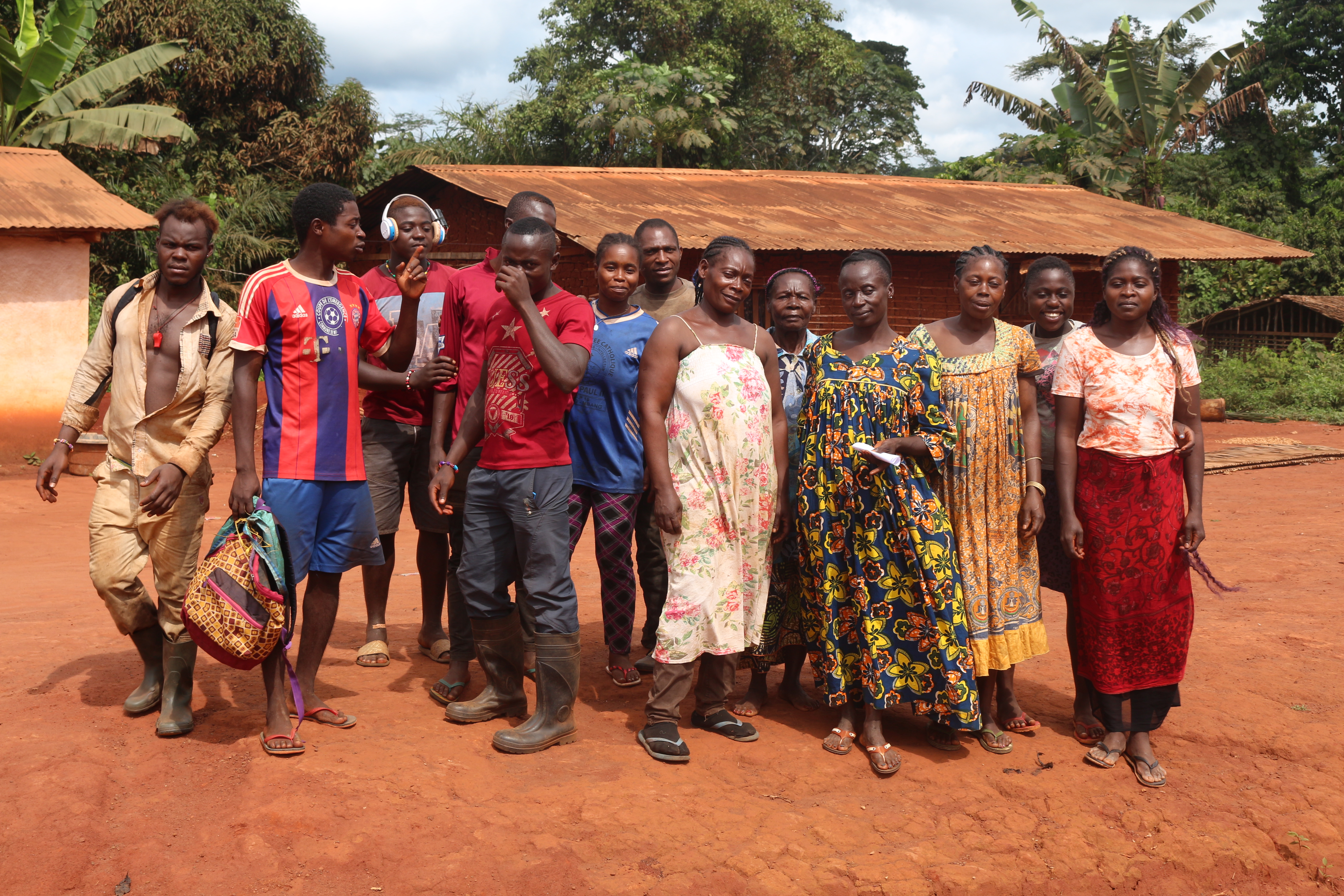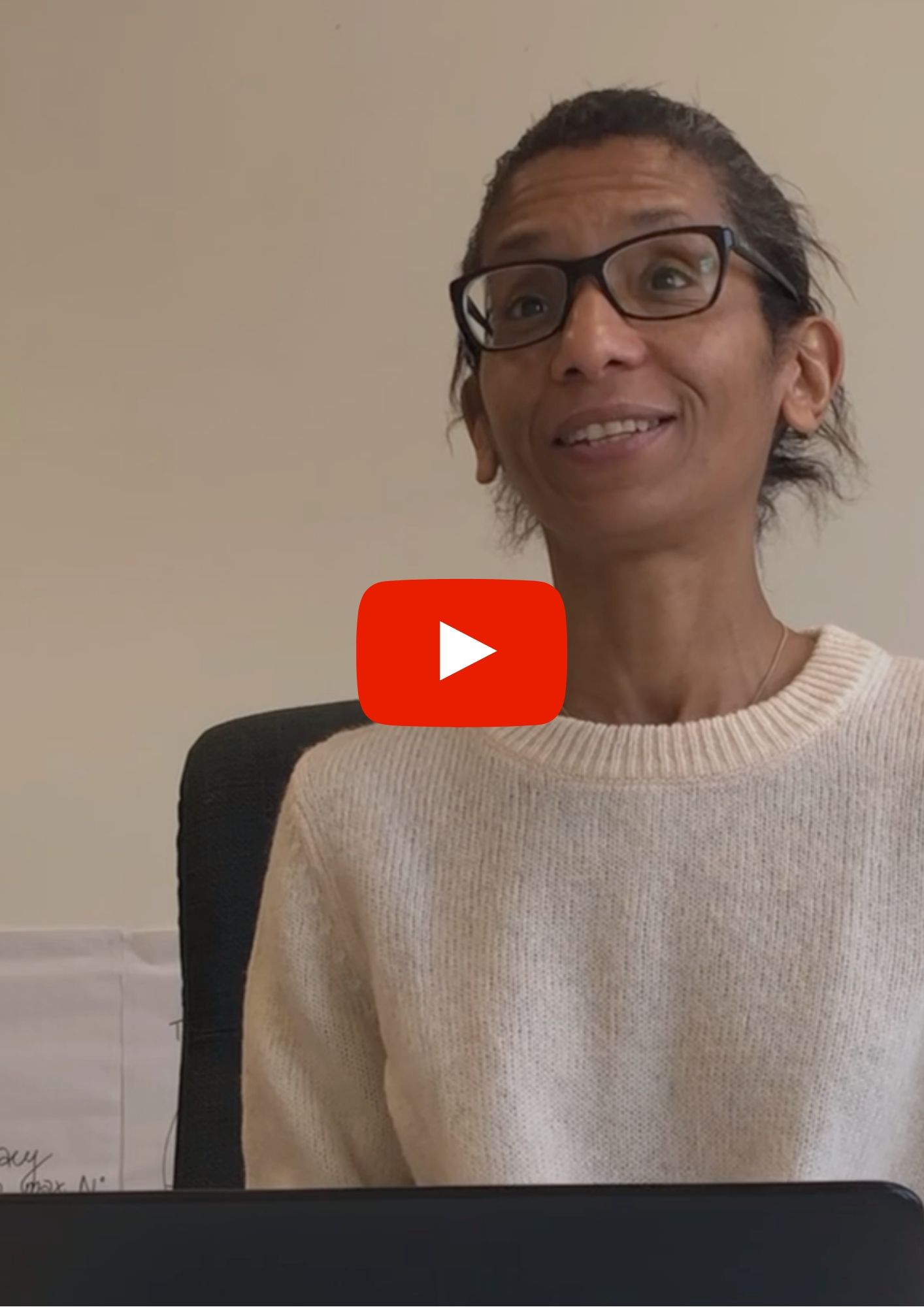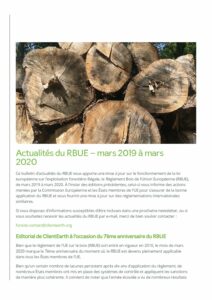Cameroun
Bien que le travail en vue de le mise en oeuvre de l’APV a été assailli par de nombreux obstacles, dont une réduction significative du créneau de participation de la société civile aux réformes de droit et de gouvernance, le Cameroun a signé un APV avec l’UE en 2010. Celui-ci est entré en vigueur le 1er décembre 2011.
Le Cameroun compte environ 20 millions d’hectares de forêts, couvrant presque la moitié du territoire national. Une partie de la zone forestière a été attribuée de manière permanente à la production forestière à long terme, une autre à la conservation, et seulement une petite partie est destinée à la foresterie communautaire. Le secteur forestier représente environ 6% du PIB du Cameroun. Il s’agit du plus grand exportateur de bois tropical africain vers l’UE, dont la plupart est du bois scié envoyé vers l’Italie et l’Espagne.

Dernière mise à jour de l'APV :
Au sortir d’une longue période de stabilité, le Cameroun, la plus grande économie de la région d’Afrique centrale, est en proie à des tensions politiques, des problèmes de sécurité et un violent conflit dans la région de l’Extrême-Nord et dans la région anglophone de l’ouest du pays. La chute des prix du pétrole a également débouché sur une crise économique. Les problèmes de gouvernance et des niveaux élevés de corruption entravent le développement du pays et l’empêchent d’attirer des investissements étrangers. Des élections législatives et municipales sont prévues en février 2020, mais elles seront boycottées par le principal leader de l’opposition. Dans ce contexte national complexe, le processus APV peine à progresser de manière significative.
Bien que les exportations de bois aient augmenté considérablement depuis 2009, la part de marché de l’UE diminue, alors que le bois camerounais est essentiellement exporté vers des pays asiatiques tels que la Chine et le Vietnam.
Les abus liés aux permis d’abattage, l’absence de réglementation efficace et la piètre application des lois, la conversion des terres pour la construction d’infrastructures et les plantations agricoles demeurent les principaux moteurs de la déforestation au Cameroun.
En mai 2019, le ministère camerounais des Forêts a diffusé un avis public expliquant en détail comment l’entreprise publique camerounaise Camvert Sarl comptait transformer 60 000 hectares de forêts primaires en un vaste site de plantations de palmiers à huile. Cette annonce a été suivie, en novembre, d’un décret du Premier ministre confirmant la déclassification de cette forêt, située dans le département de l’Océan dans le sud du pays. Cette zone se situe à proximité du parc national de Campo-Ma’an, créé en 2000 à l’aide d’un financement de la Banque mondiale, pour compenser la dégradation de l’environnement causée par le projet de pipeline Tchad-Cameroun. Il s’agira de la plus grande plantation de palmiers à huile du Cameroun et du deuxième plus grand site d’exploitation agricole dans le pays, après la plantation de cannes à sucre de SOSUCAM, d’une superficie de 61 000 hectares.
Les communautés locales, les OSC et les militants craignent des violations des droits de l’homme et une dégradation de l’environnement, ainsi que des répercussions désastreuses sur la biodiversité et notamment sur les gorilles. La conversion de ces terres forestières va à l’encontre de l’engagement du Cameroun à respecter et protéger l’environnement, la biodiversité et les droits des populations autochtones.
Dans ce contexte difficile, le processus APV – qui n’a pas enregistré de progrès significatifs depuis deux ans – a fait un pas en avant, avec la réalisation d’une analyse prometteuse de l’état de la situation. Un atelier national organisé en juin avec plusieurs parties prenantes a permis l’élaboration d’une théorie conjointe du changement, d’une feuille de route et d’une stratégie de communication visant à revigorer le processus APV au cours des sept prochaines années.
Les pierres d’achoppement suivantes ont été mises en évidence : le monopole inapproprié du ministère des Forêts sur la gestion des forêts, le manque de coordination interministérielle, des mesures incitatives et des sanctions insuffisantes pour encourager les acteurs clés à changer de comportement, l’impunité dans les cas de corruption, le manque de volonté politique, la mise en application inefficace du règlement de l’UE sur le bois et le manque de dialogue avec les pays asiatiques. Des solutions ont été formulées pour chacun de ces problèmes et intégrées dans la stratégie, la feuille de route et des plans de travail. Un nouveau site web consacré à l’APV Cameroun-UE a été présenté comme un outil essentiel pour améliorer l’accès à l’information. Au cours de l’analyse de l’état de la situation, les parties prenantes ont à nouveau insisté sur la
nécessité d’une coopération continue, de l’appropriation, de la transparence, de la participation et du dialogue.
Malheureusement, plus de six mois après l’atelier national sur l’APV, le plan d’action, la stratégie et la feuille de route n’ont pas encore été officiellement validés. Reste à espérer qu’une réunion du Comité national de suivi sera organisée sous peu pour approuver les précieux travaux collectifs menés en 2019.
Dernière mise à jour datant de janvier 2020.
Un bref historique de la négotiation et la mise en œuvre de l’apv du point de vue de la société civile
Lorsque le Cameroun et l’UE ont conclu l’APV, la société civile camerounaise a produit conjointement avec LoggingOff un «contre-exposé» concernant l’accord, fournissant ainsi leurs points de vue sur le processus, les défis et les possibilités d’améliorer la façon dont les forêts sont détenues et gérées.
Contact point

Pour les dernières informations sur le Cameroun, contactez CED au ced@cedcameroun.org
Partager cette page sur les réseaux sociaux:





